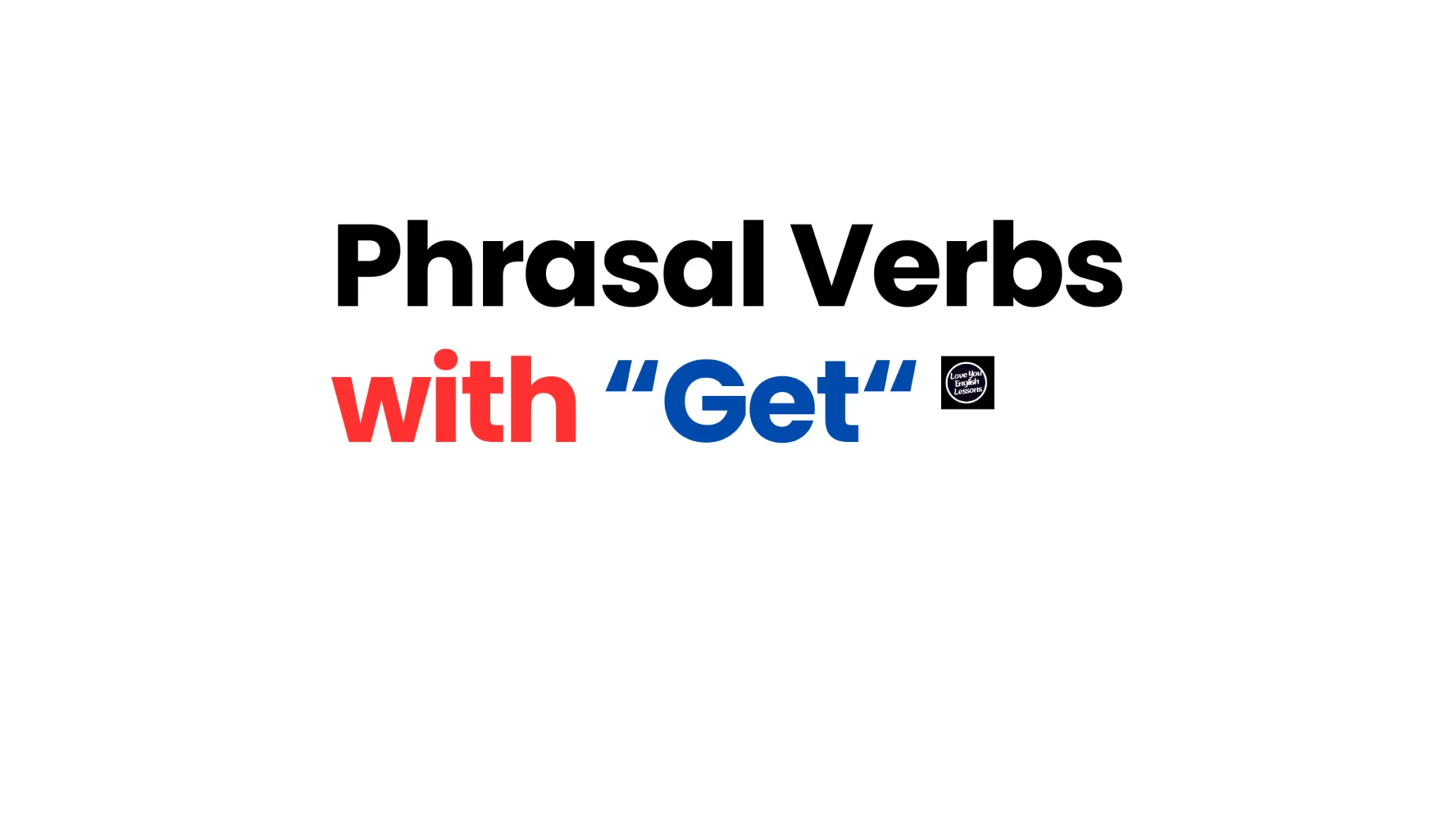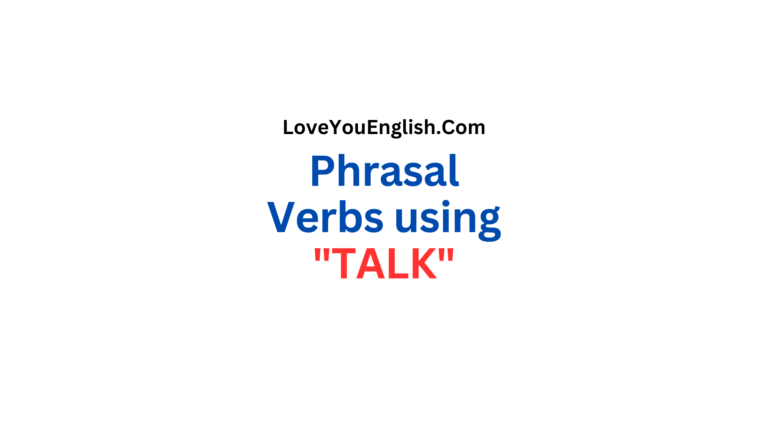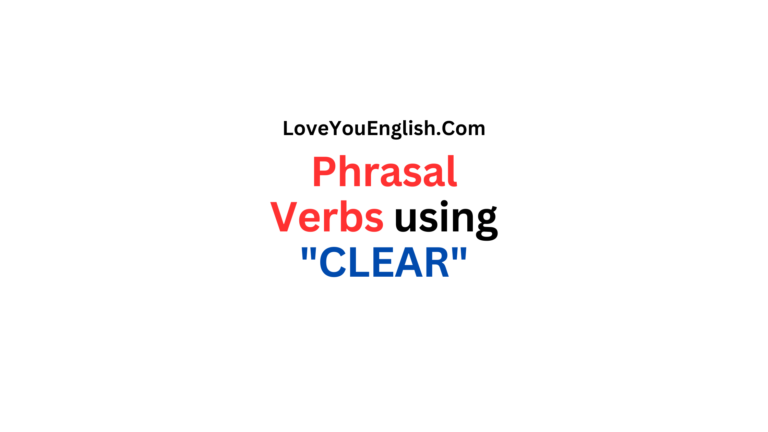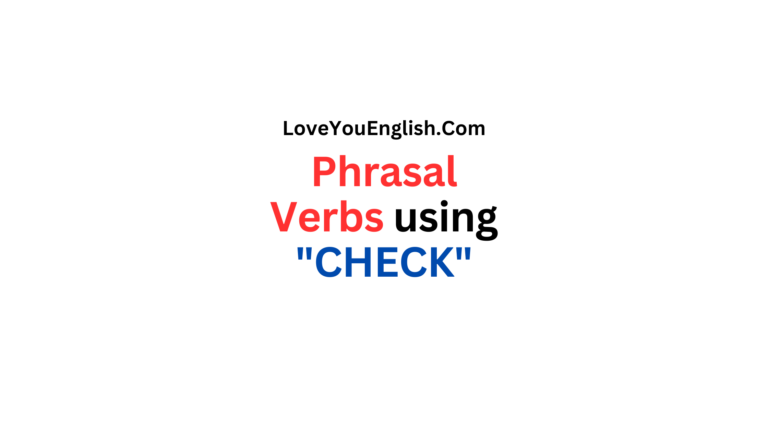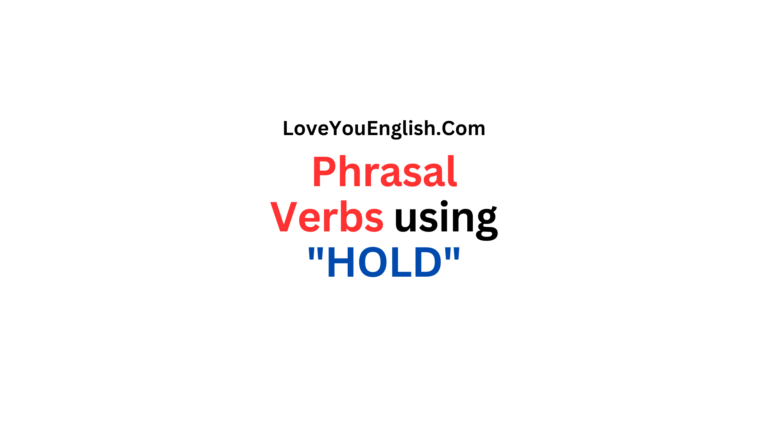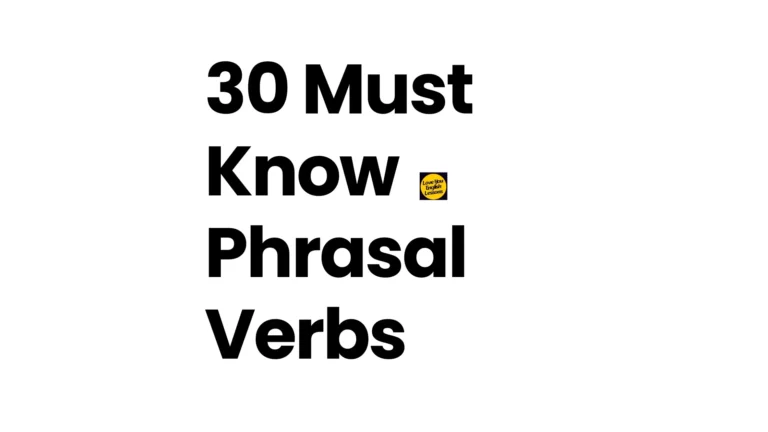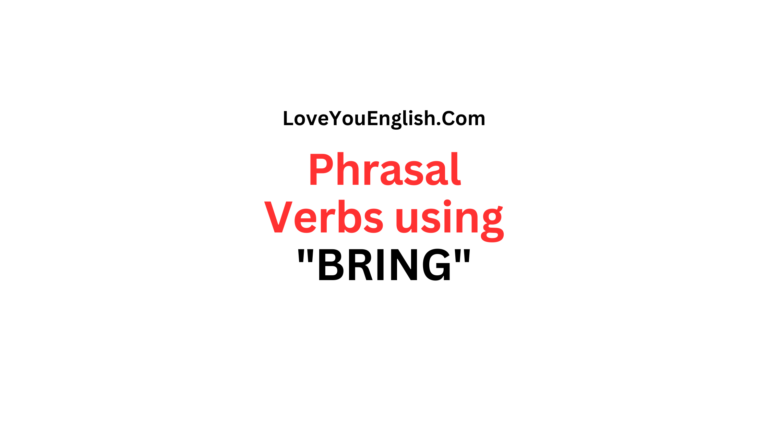Phrasal Verbs with “GET,” along with their meanings
Phrasal Verbs with “GET,” along with their meanings
Hello everyone,
If you’re learning English, you’ve probably come across some very confusing phrases that make no sense when you look at the individual words.
Things like “get over it,” “get through this,” and “get around to that” just don’t compute at first glance.
What do these peculiar expressions mean?
These are examples of phrasal verbs – verb phrases that combine a verb like “get” with a preposition or adverbial particle to create a new meaning.
Phrasal verbs are extremely common in English, especially in informal speech and writing.
Mastering them is key to fully understanding the language and sounding more natural.
In this lesson, we’ll take a deep dive into phrasal verbs that start with the verb “get.”
Get ready to get smart about getting many different shades of meaning!
Get + Preposition
One major category involves “get” combined with different prepositions like “in,” “out,” “up,” “down,” etc.
This changes the meaning of the verb in systematic ways.
Get In
– To enter or go inside (I got in the car.)
– To be accepted or admitted (She got in to her dream college.)
Get Out
– To exit or leave (I need to get out of this sauna!)
– To become known or released (The news got out about their secret wedding.)
Get Up
– To rise to a standing position (I get up at 6am every day.)
– To prepare or make (Mom got up a wonderful breakfast.)
Get Down
– To descend or lower oneself (Everyone get down on the floor!)
– To depress or sadden (His failure really got him down.)
Get Off
– To descend from (We got off the bus downtown.)
– To change the subject (But I digress…let’s get off that topic.)
Get On
– To board a vehicle (We got on the plane with seconds to spare.)
– To progress or advance (How are you getting on with your studies?)
Get By
– To survive or manage (We’re just getting by on his low salary.)
– To pass someone/something (The car got by me at high speed.)
As you can see, the different prepositions systematically alter the meaning of “get” in logical ways relating to movement, location, status and more.
Pay close attention to which preposition follows “get.”
Get + Particle
Another category involves “get” combined with an adverbial particle that further modifies the meaning.
Get Along
– To proceed or make progress (His project is getting along well.)
– To have a good relationship (She really gets along with her in-laws.)
Get Around
– To circumnavigate or bypass (Use the side streets to get around the traffic.)
– To be socially active (James is quite the social butterfly and gets around.)
Get Away
– To escape, leave or go on vacation (We’re getting away to the beach.)
– To depart from a subject (But I’m getting away from my main point.)
Get Back
– To return (What time will you get back from your trip?)
– To regain possession (I need to get back my book from Sarah.)
Get Over
– To recover from an illness or loss (It took months to get over that bad flu.)
– To accept and move on (You need to get over your fear of public speaking.)
Get Through
– To finish or complete (I can’t get through this book, it’s so dry.)
– To connect via communication (I can’t get through to her, her phone is off.)
Read more:
Get Together
– To meet or assemble (Let’s get the family together for the holidays.)
While some of these may seem random at first, they actually make logical sense when you think about the metaphorical meanings of the particles.
Idiomatic Get Phrases
On top of those systematic categories, English also has many idiomatic phrasal verb expressions centered around “get.”
Get It
– To understand (Oh, I get it now!)
Get Lost
– Go away in an impolite sense (Get lost, you bother me.)
Get Going
– To start or begin (It’s late, we should get going.)
Get Rid Of
– To dispose of or eliminate (We need to get rid of this junk.)
Get Ahead
– To make progress and be successful (He’s very ambitious and wants to get ahead.)
Get Ahold Of
– To obtain or make contact (I can’t get ahold of her to confirm the plans.)
Get Dressed
– To put on one’s clothes (The kids have gotten dressed and ready for school.)
Get Ready
– To prepare (Get ready, the movie is about to start!)
Get Real
– To be honest and practical (Oh, get real, that could never happen.)
While the meanings of these idioms can seem arbitrary, they make more sense when you consider the contexts, they are typically used in.
Pay attention to how native speakers employ them properly.
Get + Adjective
We also use “get” combined with an adjective to describe someone or something entering a new state.
Get Angry/Mad
– To become enraged or furious (He got angry when I was late.)
Get Bored
– To become disinterested or understimulated (The lecture got so boring.)
Get Confused
– To become bewildered or puzzled (Sorry, I’m getting confused by all these rules.)
Get Excited
– To become enthusiastic or eager (I’m getting excited for our trip!)
Get Lucky
– To have success through chance (If we get lucky, we can get front row seats!)
Get Ready
– To become prepared (Get ready, we leave in five minutes.)
Get Smart
– To become intelligent or bright (Reading helps kids get smart.)
Get Well
– To recover one’s health (I hope Grandma gets well soon after her surgery.)
With these examples, you can see how “get” combines with an adjective to vividly describe someone or something entering the state that the adjective describes.
Whew! We’ve covered a huge range of meanings and uses for “get” as a phrasal verb.
While English phrasal verbs can seem confusing at first, they become much clearer when you analyze the logic behind the different particles and prepositions that go with “get.”
The best way to truly master these is to exposure yourself to lots of examples and practice using them in conversation and writing as much as possible.
Get acquainted with them, get comfortable with them, and get good at them!
Once you get phrasal verbs down, you’ll get way ahead in your English skills.

